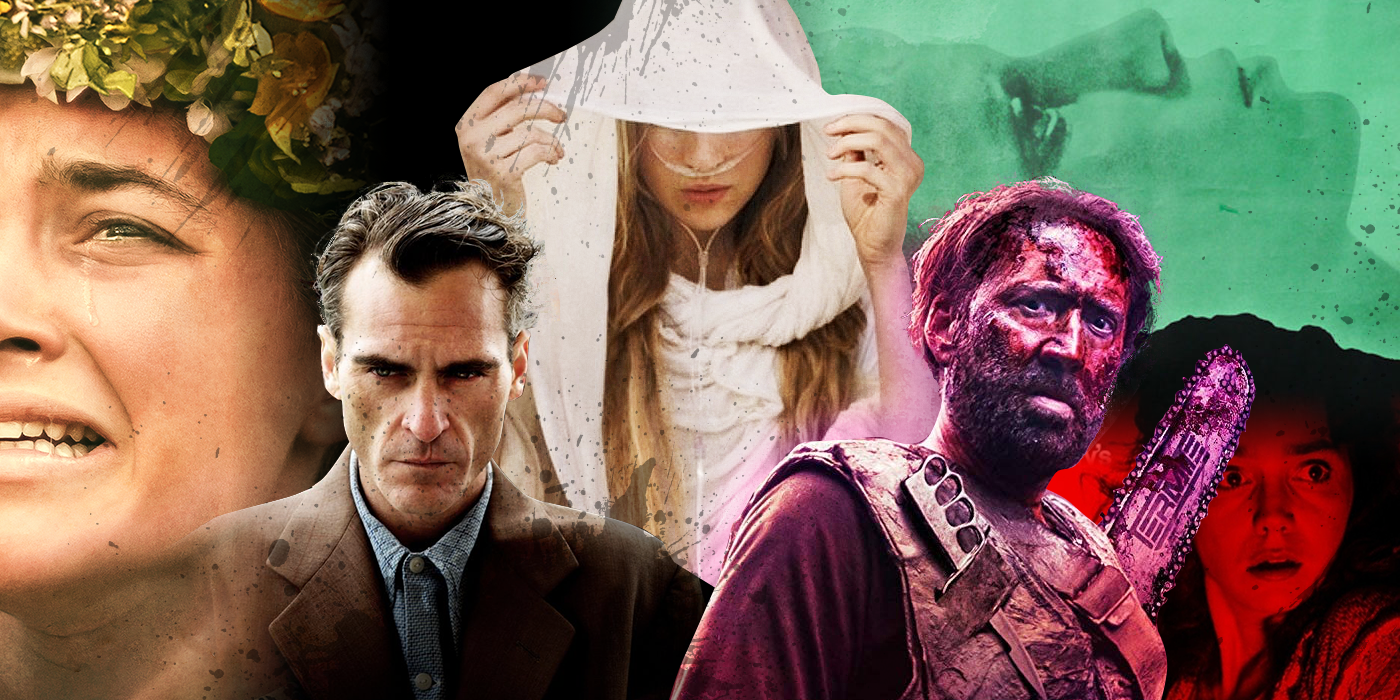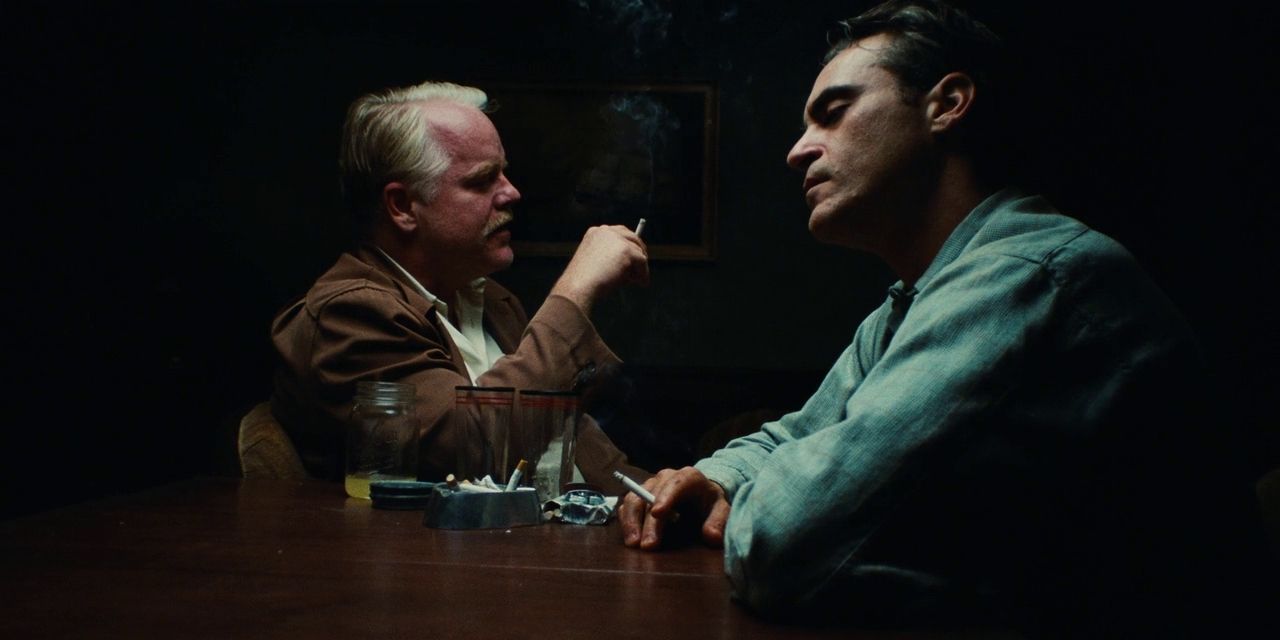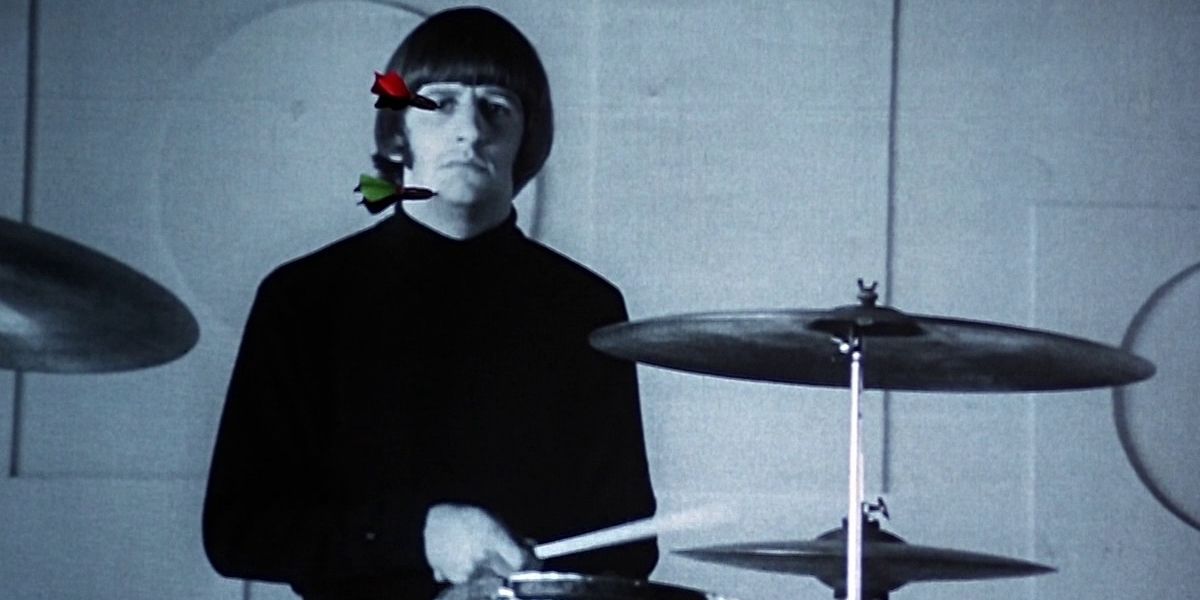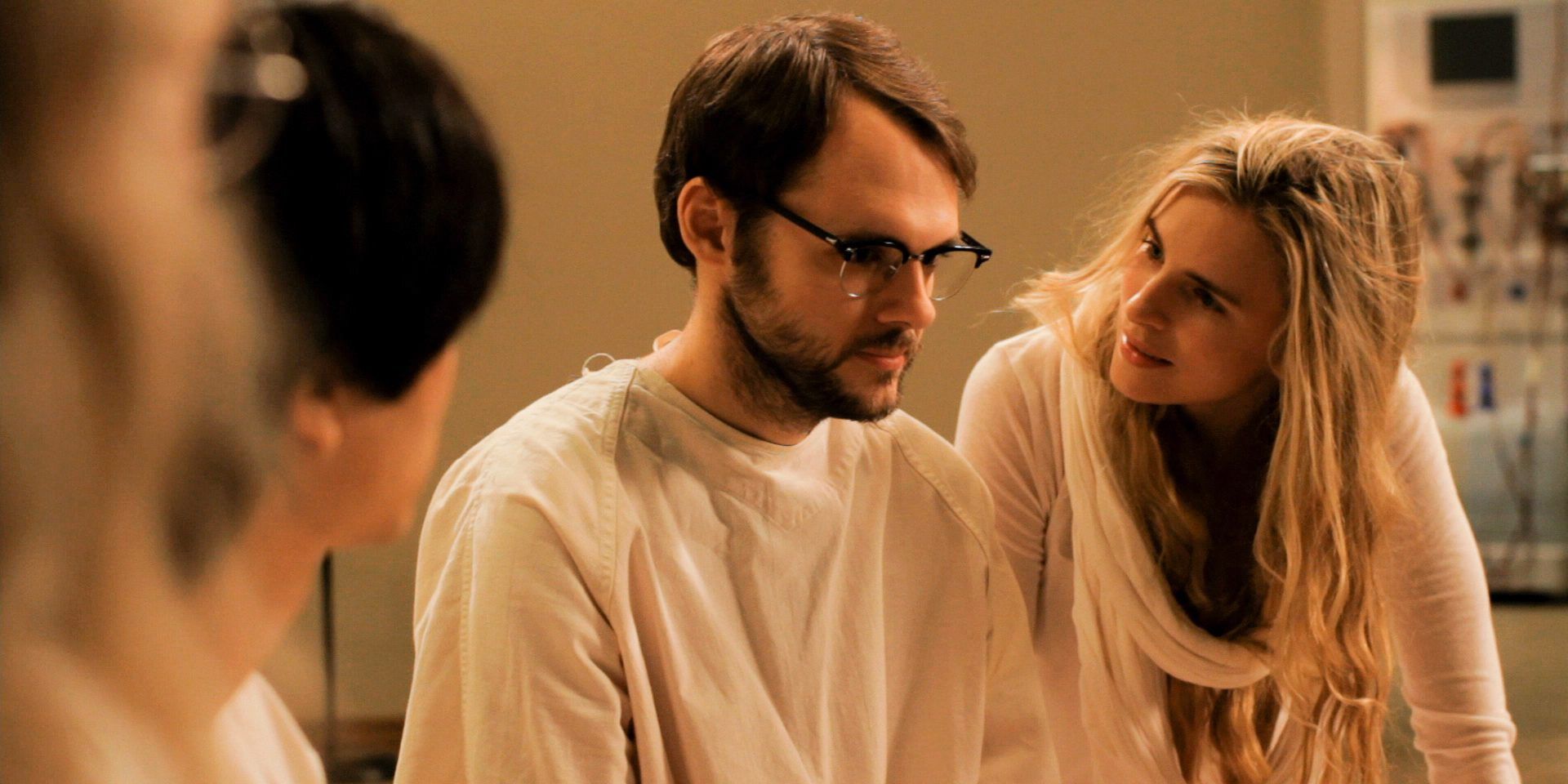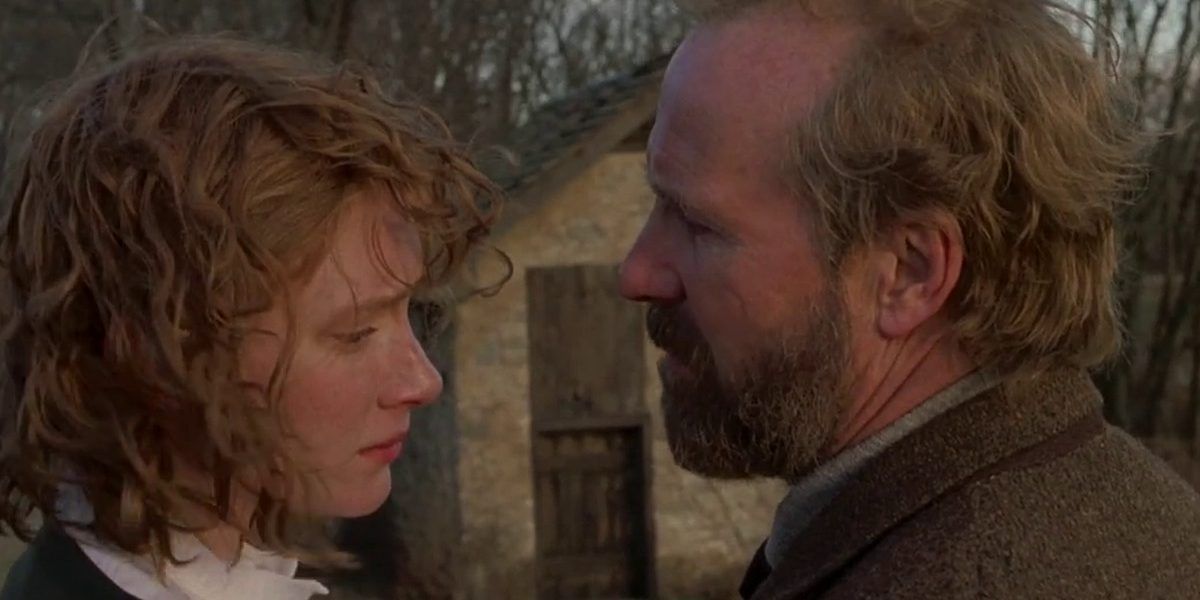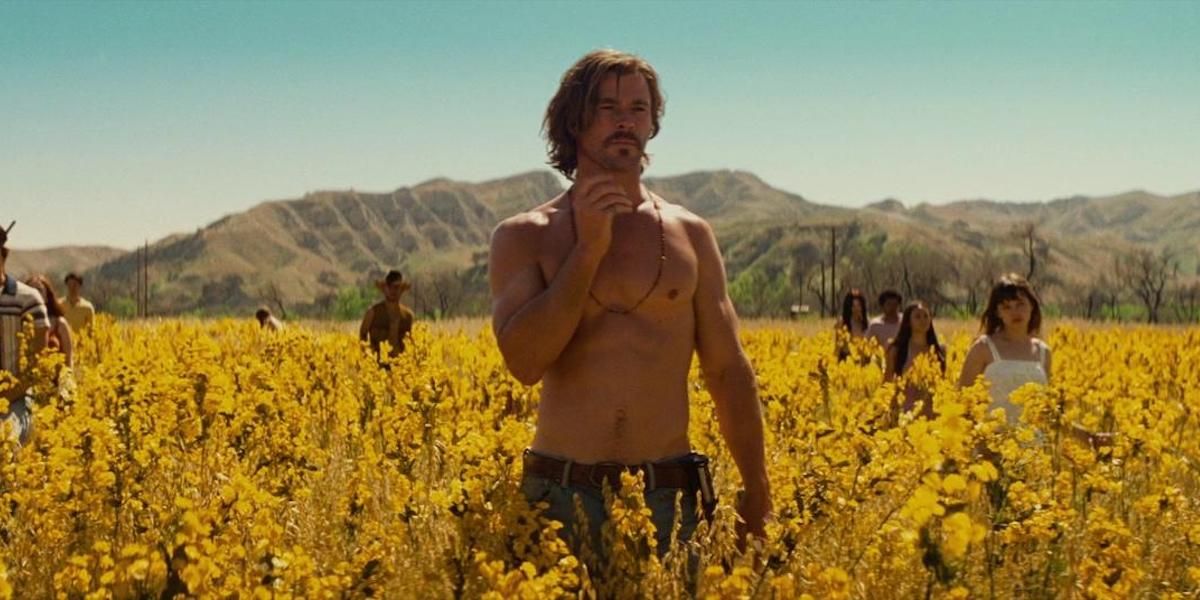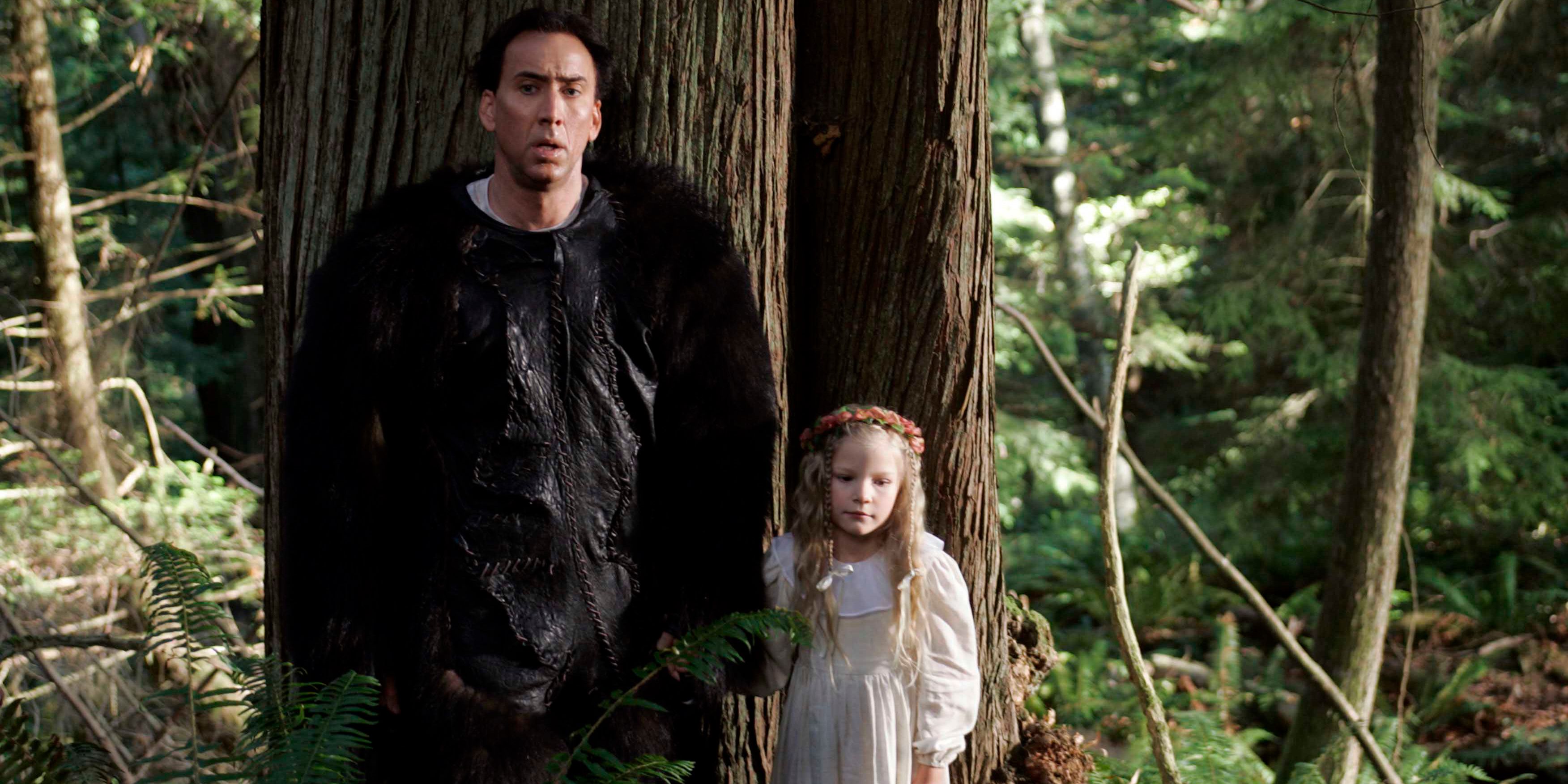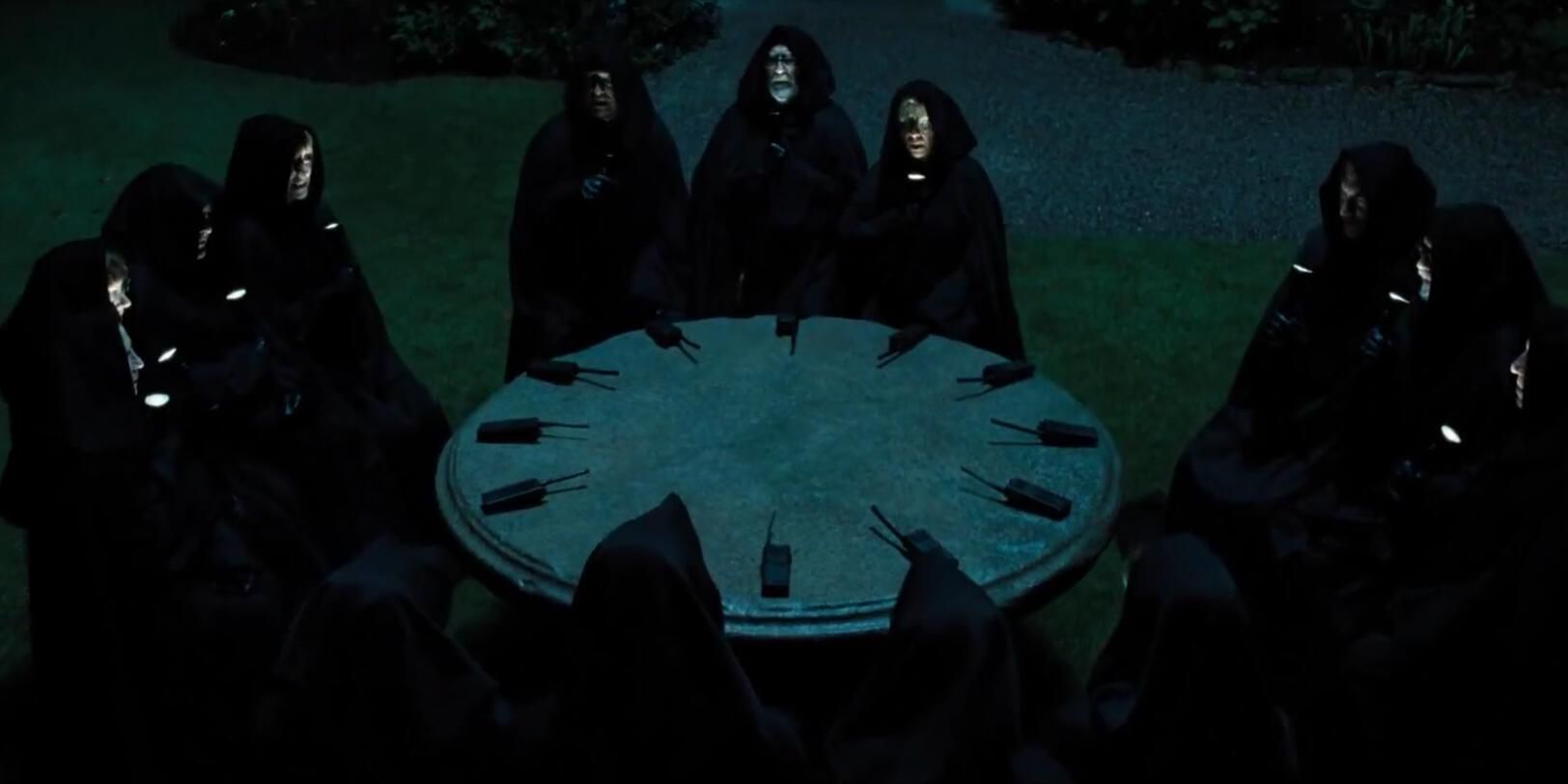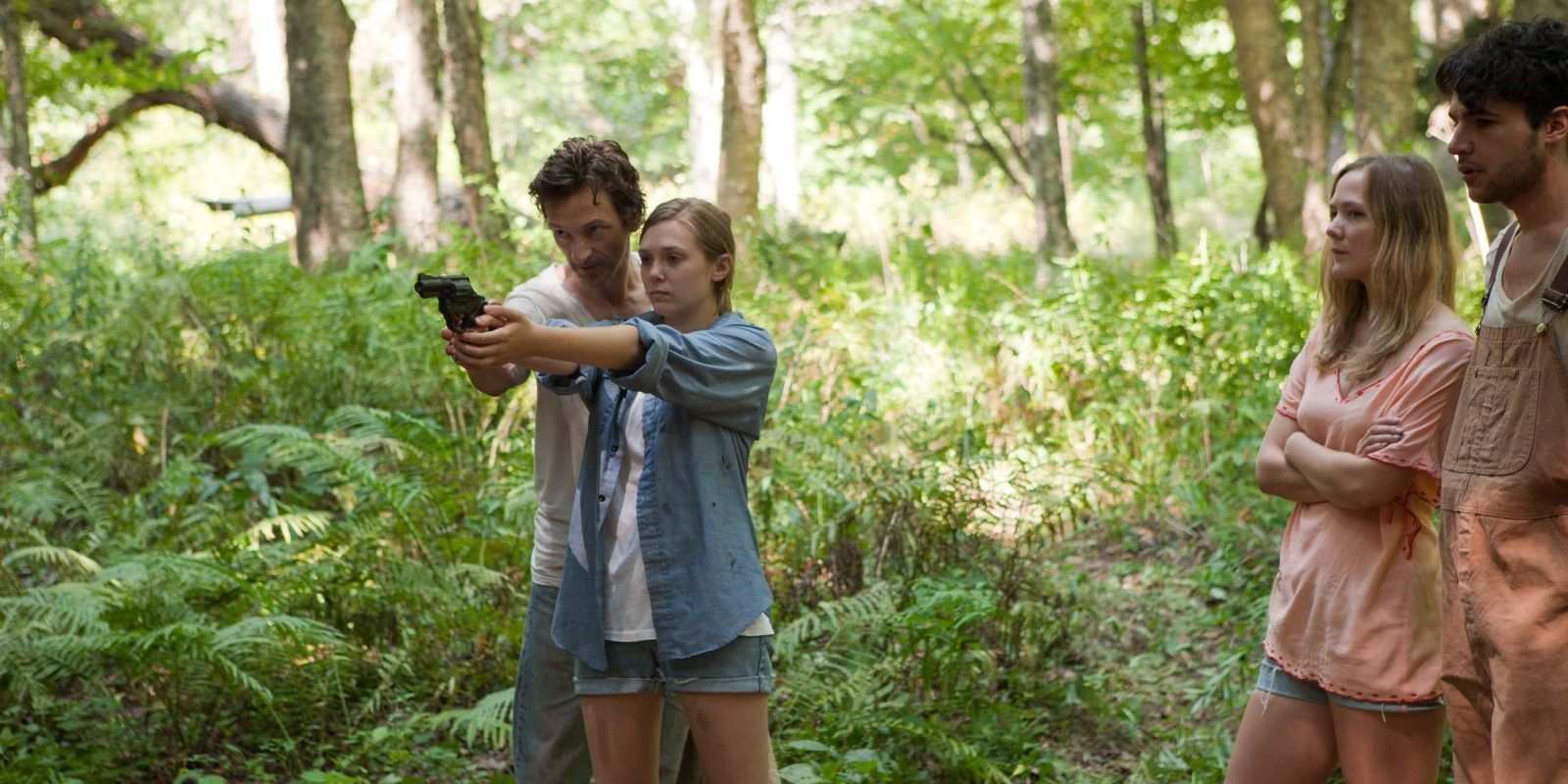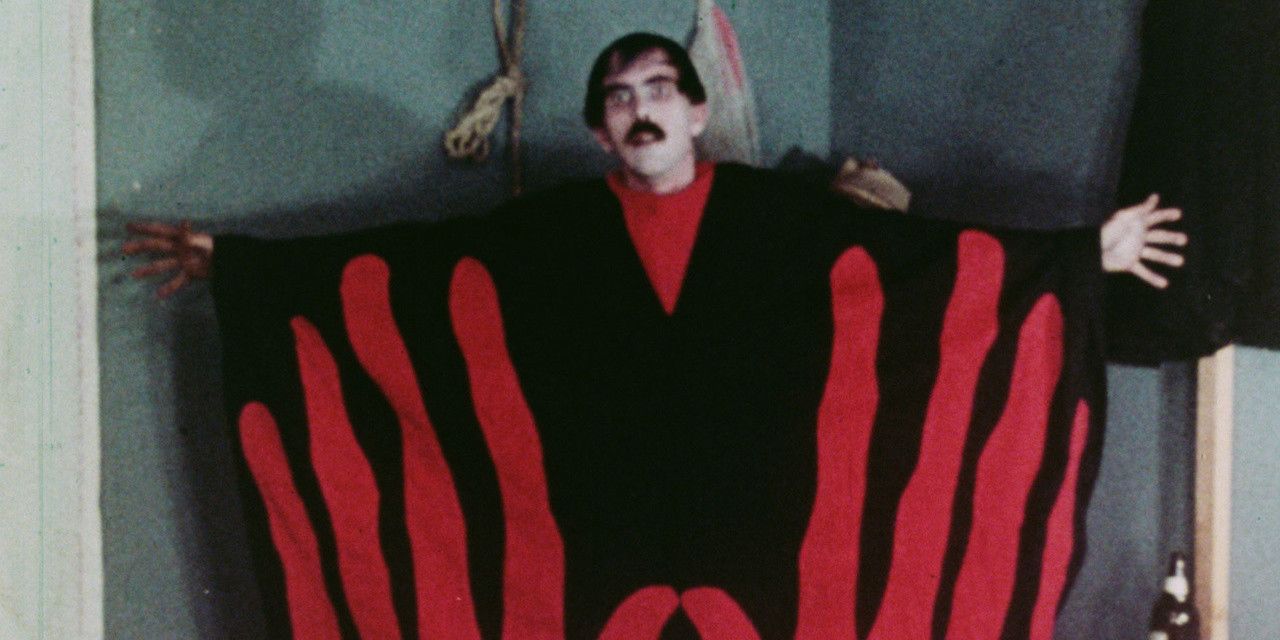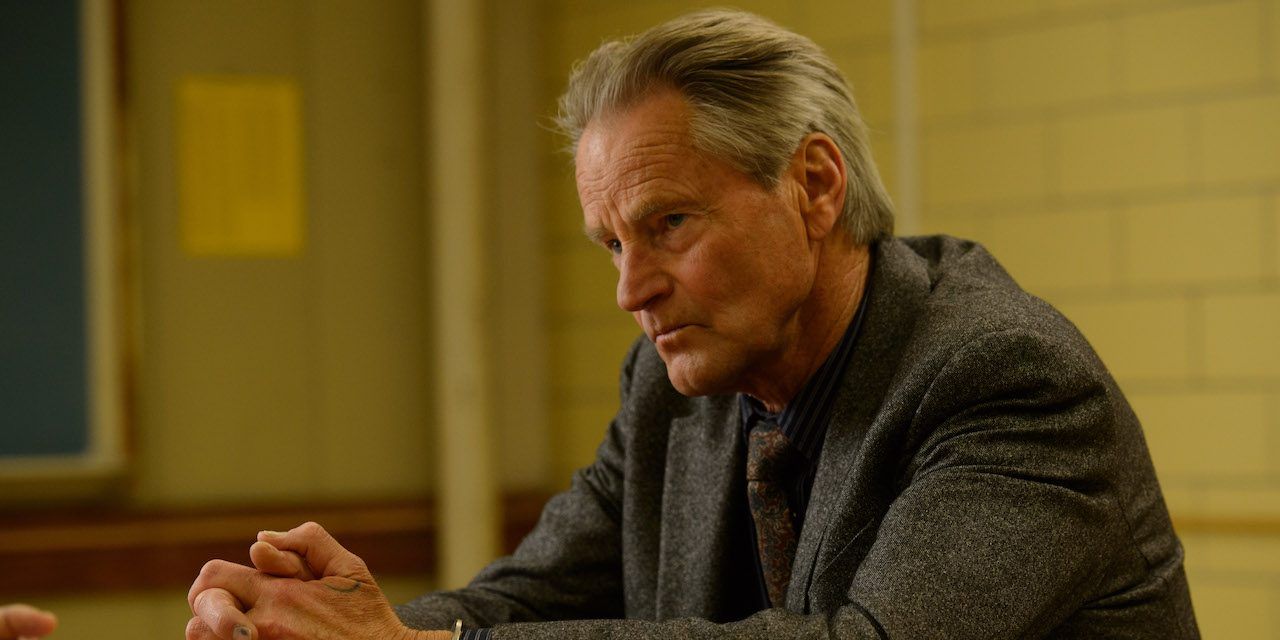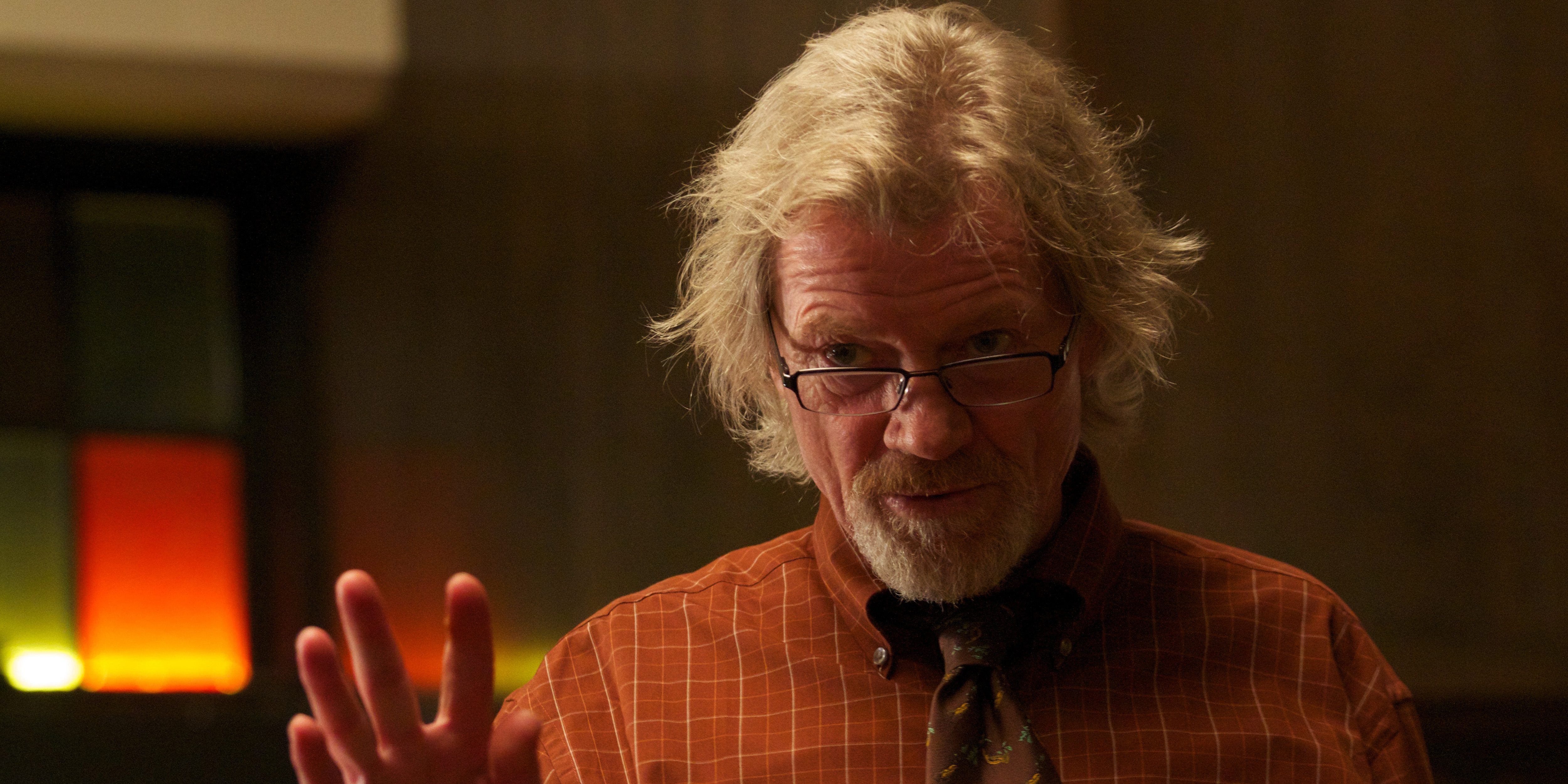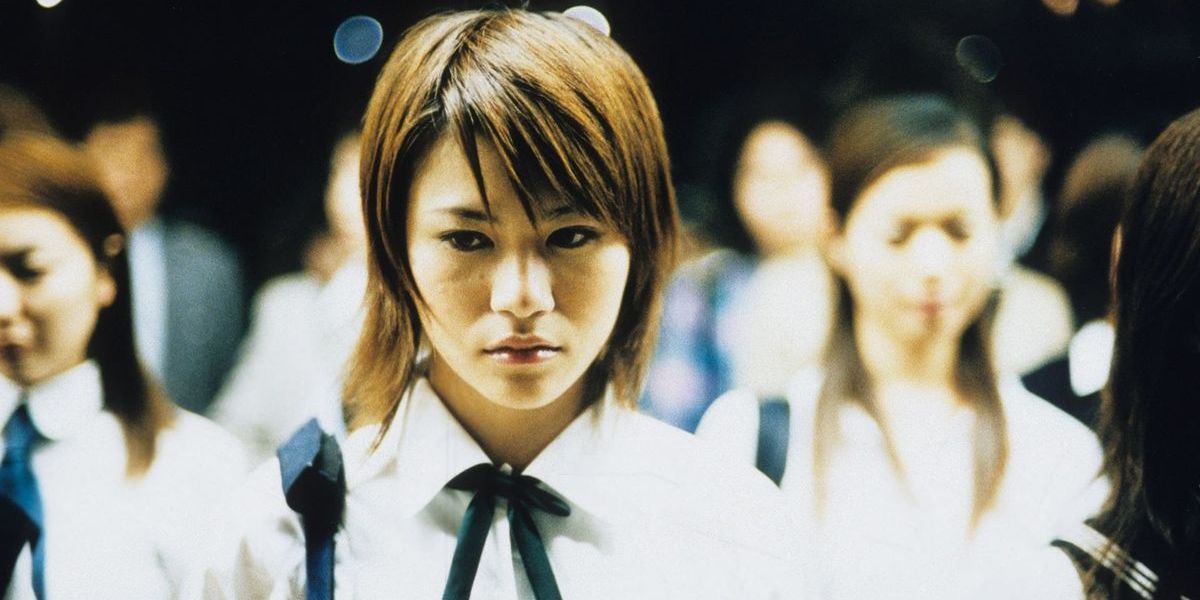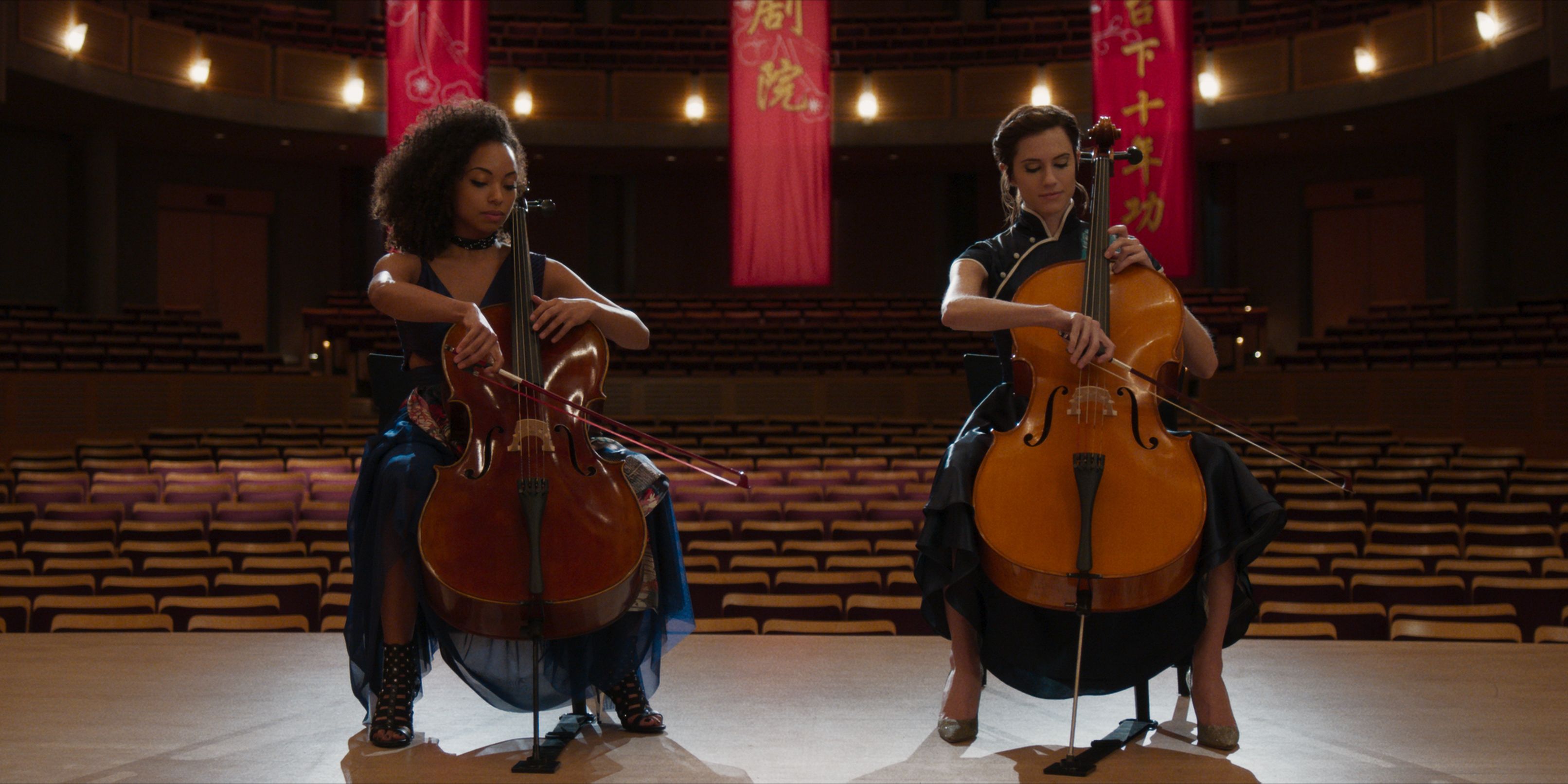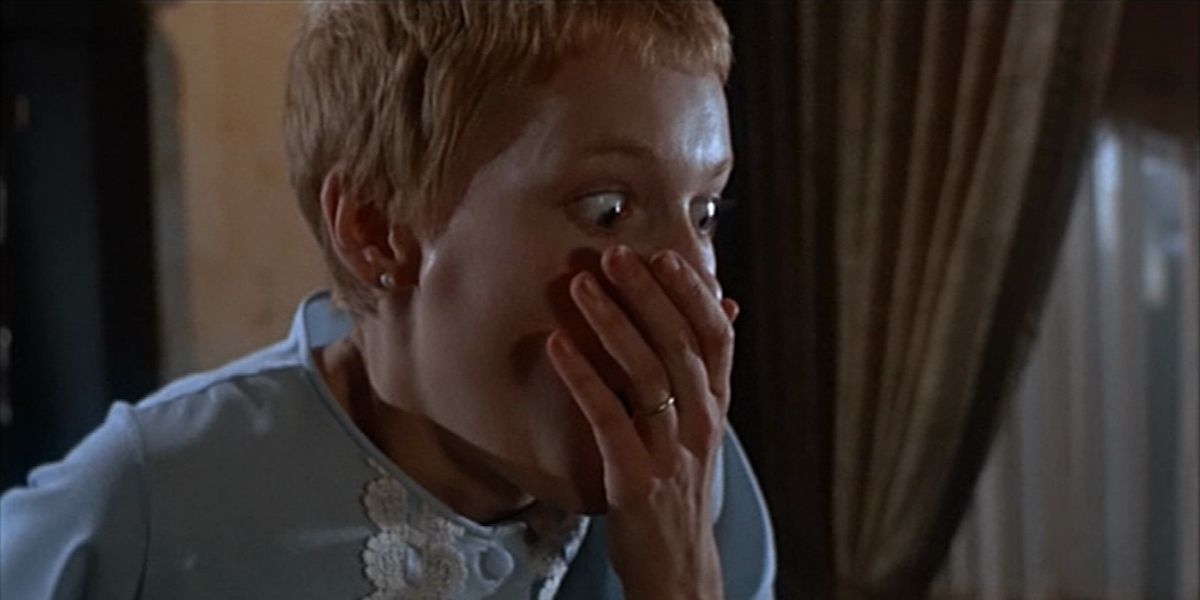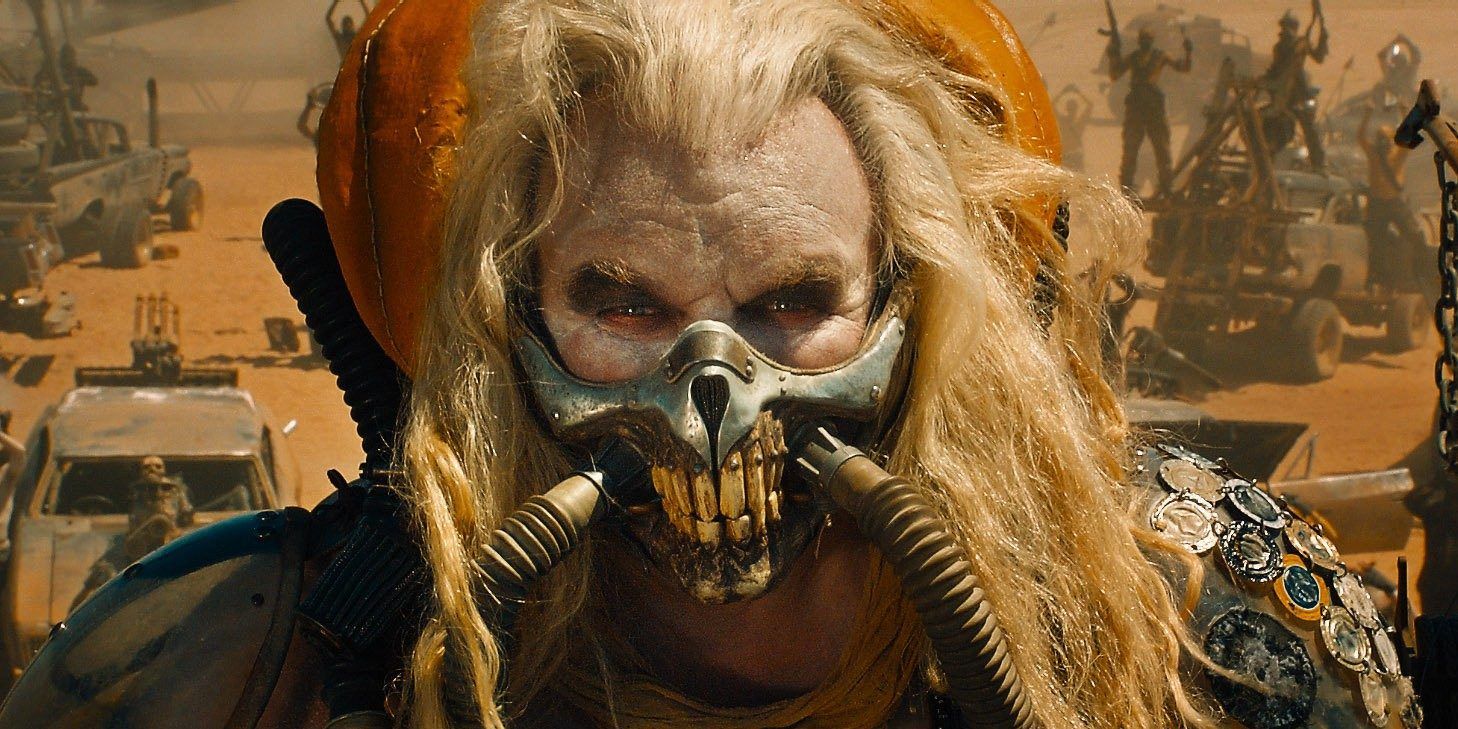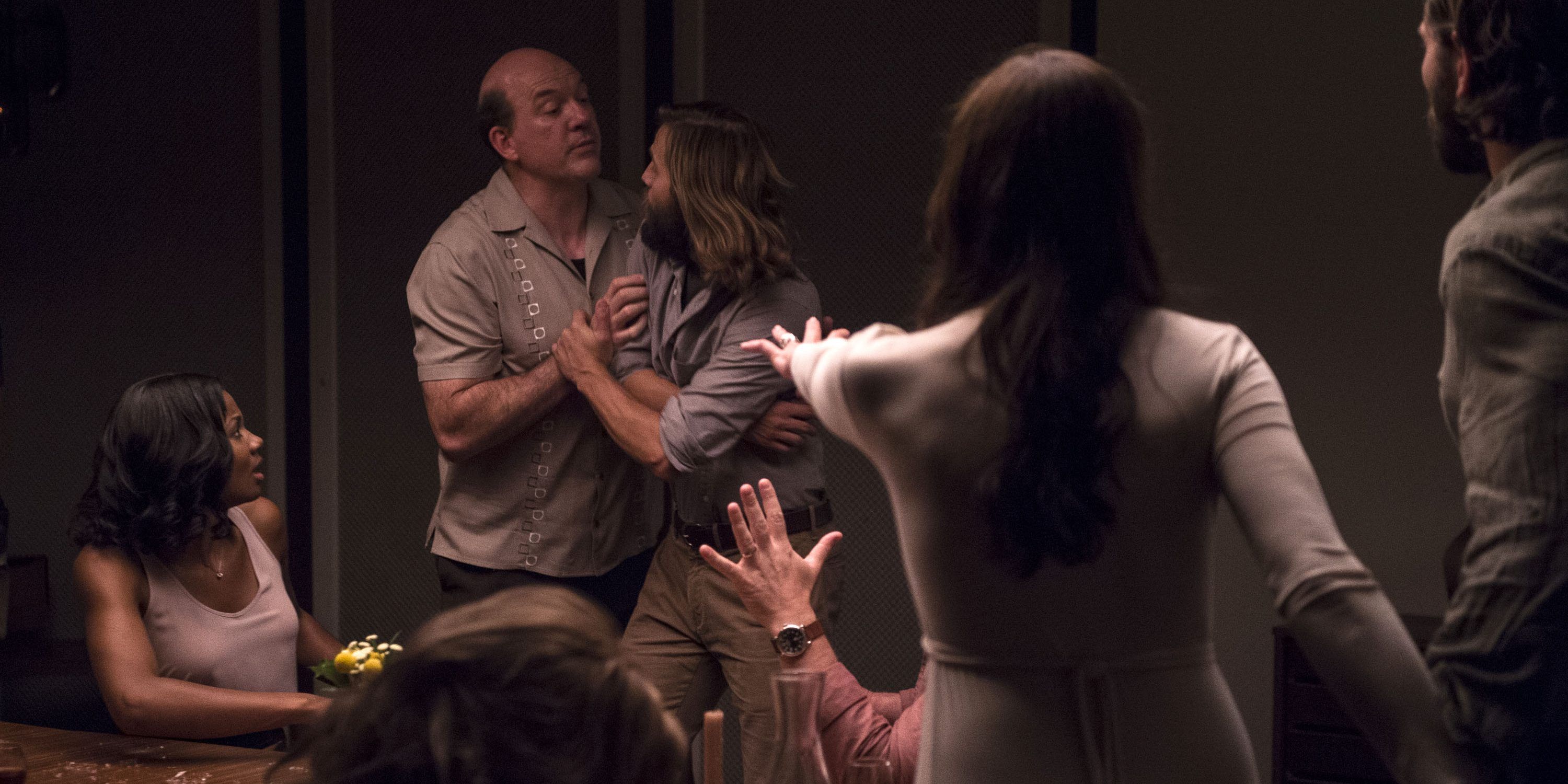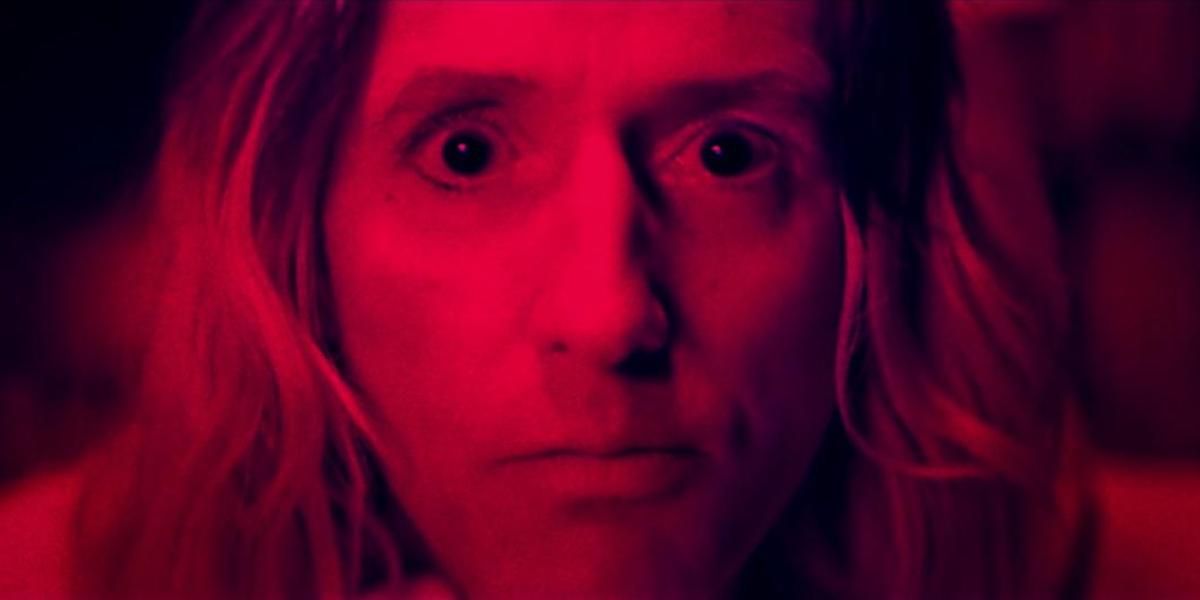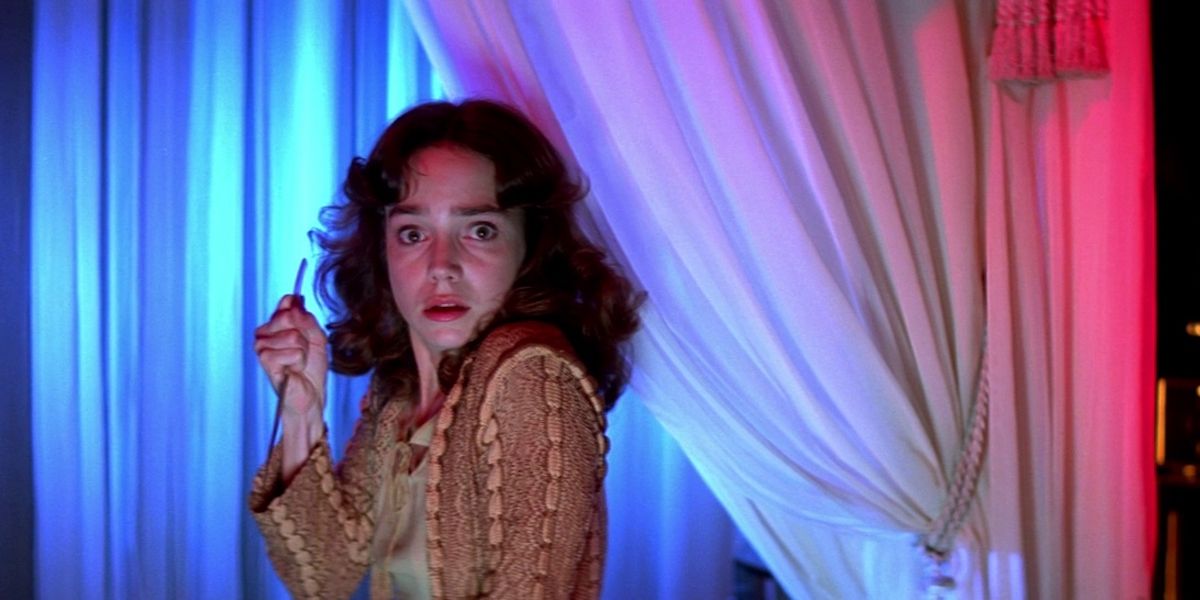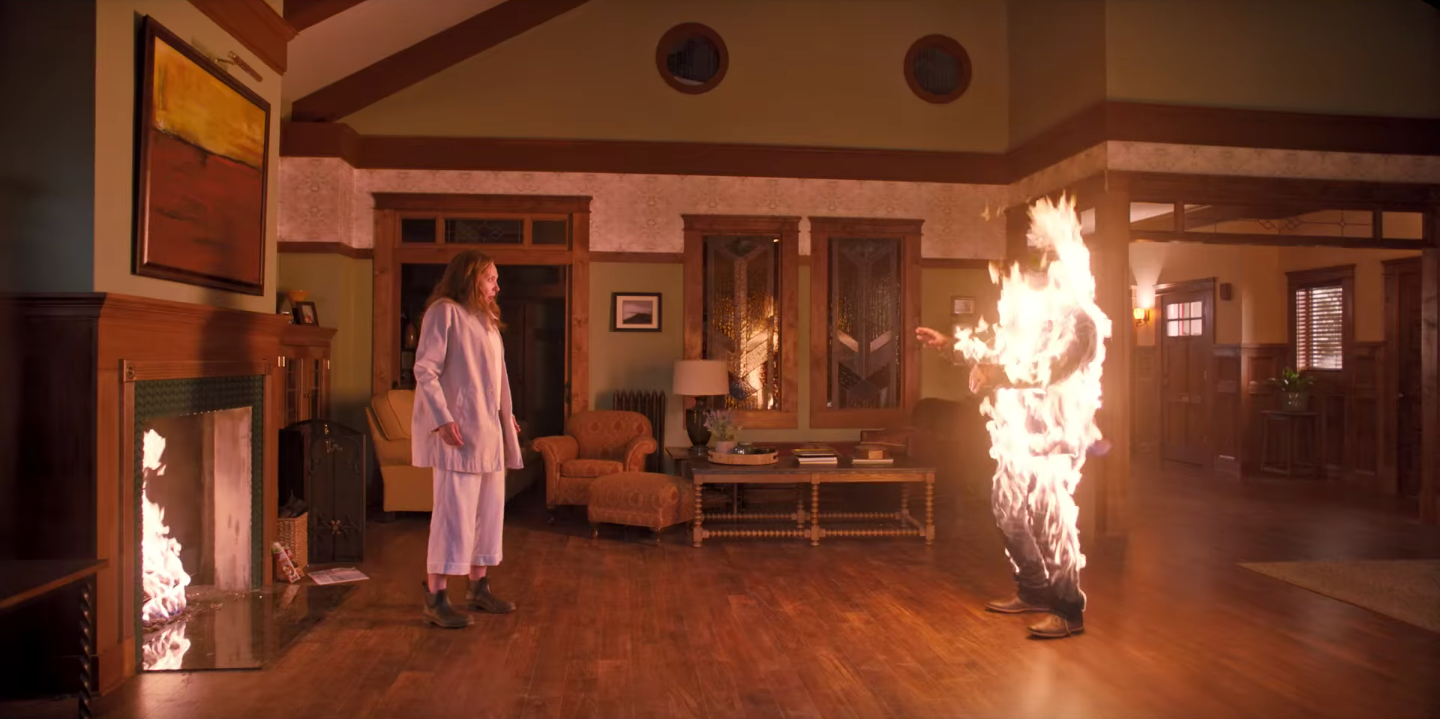As evidenced by the success of recent series like Wild Wild Country and The Vow, we humans are fascinated by cults. These segmented groups follow specific, usually taboo beliefs, often masterminded by a charismatic figurehead who, more often than not, has nefarious goals of power behind their facade of newfangled ideas of how to live. They thrive on multiplication, recruitment, and punishment of anyone who dares speak against or uncover the truth behind their system. Cults are fascinating corruptions of that basic human need to socialize and find our group of like-minded people. We're fascinated by them because we think to ourselves, "Could this be me? Am I that gullible? Is this cult that convincing?"
With that lens in mind, I've examined 20 of the best fictional movies about cults with one simple, personal, interactive question: What are my chances of surviving this cult? These films are arranged from "most likely to survive" to "least likely to survive," and I hope they spark the kinds of discussion that I always love from the best movies exploring the darker impulses of the human condition: What would you do?
20. The Master
Philip Seymour Hoffman is a powerful force, an acting titan who makes sense to successfully lead a cult that's kinda-sorta based on Scientology. But ultimately, The Master is too interested in poking at the vulnerabilities that lead to the inherent destruction of said cult and any emotionally volatile participants (looking at you, Joaquin Phoenix) therein to present a real threat of taking me over. I'm not gonna lie: A cult leader who vulgarly buckles under the pressure of a few polite "Excuse me's" is not a cult leader who can successfully brainwash me. You gotta have unchecked confidence as a cult leader, and from his pig-inspired outbursts to his power-play sexual dominations by Amy Adams to his eventual explicit instruction for Phoenix to never find a master again, Hoffman's "The Cause" is one that could never persuade me.
19. Help!
There are many admittedly scary (and admittedly problematic) elements to the Eastern-culture-appropriating cult at the center of Help!, the second Beatles-starring feature film that's rife with full color pop art, music video-foreshadowing imagination and surrealism. They're interested in human sacrifice, they have a large cabal of followers, they have various pieces of sci-fi machinery, they're powerful enough to be able to stalk the most powerful band in the world so they can kidnap a certain ring-wearing Ringo Starr to murder him. Their Achilles' heel? Shenanigans. Richard Lester and his Beatles are masters of staging silly slapstick set pieces, turning the most fearsome of cult hunters into doddering nincompoops easily defeated by enough frenetic moxie and musical performances. I may have to hide my love away, but I don't see myself needing to hide in fear from this particular cult.
18. Sound of My Voice
Sound of My Voice is an intoxicating, tension-filled, beautifully ambiguous low budget thriller. It asks its documentary filmmaker protagonist Christopher Denham to keep believing what he knows to be factual — this society is a cult led by a fraud — while the sound of Brit Marling's voice — and various unexplainable occurrences — luringly insist it's all true. It's a phenomenal feature that explores the fragility of structures like monogamy, righteous confrontation, even linear time. The impulse to believe Marling is palpable, even understandable, especially given her offering of a glimmer of hope in a certainly doomed future. The main guy even looks like me! I'm gonna be putty in this cult's hands, right?
Well, no. Because part of the initiation involves eating an apple and vomiting it up. And I, simply, hate vomiting. I had to turn away during this scene and I feel weird even writing about it. Yes, within the context of the scene it actually makes Denham believe Marling more, and yes, there are more tangible, fact-based reasons to doubt Marling's shaky story. But the moment a cult leader asks me to puke, I'm running the hell out of there, and no one will be able to stop me. A cult of personality will always be trumped by the power of emetophobia.
17. The Village
In a sense, the cult from The Village may have already defeated me. Because when I look at the foundational reasons of the cult's existence, I think to myself, "That's not so bad!" At the center of any other cult, movie or otherwise, tends to come a selfishly human need for power. But the reasons for William Hurt to create this compound where members of our modern society exist in a pretend 19th century village are fundamentally altruistic and protective — in intent, at least. Hurt and several other adults have suffered endless trauma in our real world; in this village, hidden away from such modern trauma, all will be safe, understandable, peaceful. To an extent, I get it!
With, of course, some pretty wild exceptions. For one: The children born within this cult have no say into whether they believe the Big 19th Century Lie, because it's presented as truth to them; this is a level of insidious brainwashing that's hard to forgive and hard to combat. And for two, there are, like, giant bone monsters that attack people who try to escape. These do present challenges to my survival, to be sure, especially if I'm hypothesizing a world where I'm born into this and accept it as "reality" rather than "choice." But I consider myself, like Bryce Dallas Howard and Joaquin Phoenix, a naturally curious person, one who loves to investigate, to poke, to find the substance behind the costume. So once I realize in some way these bone monsters are just costume, not to be particularly feared, I have a feeling the remaining unveilings and re-acclimations into society would occur in short order after — even as I admit the therapeutic allure of inventing an old-timey village to deal with trauma.
16. Bad Times at the El Royale
The mythology and ostensible beliefs behind Chris Hemsworth's cult in Bad Times at the El Royale should be enough to discredit it as a threat on paper alone. There's not much substance behind what he's selling, beyond vague, Scientology-cum-Charles-Manson notions of freeness, clarity, and utopian ideals (that somehow manage to involve killing non-believers, wouldn't ya know!). I don't see this cult having enough of an appeal to even get me close enough to orbit to threaten me...
...except for the Chris Hemsworth of it all. Hemsworth is, as we all know, unbelievably charismatic and attractive. When he reaches out his hand to "save" Cailee Spaeny, lit like Christ carrying you on the beach with only one set of footprints, I'm taking it without thinking. And his character is wonderful at using this innate charisma in a twisted, trapping sort of way, turning on a dime to threaten murder, punition, revenge when he needs to, without breaking a smile (even as he often breaks his shirt). He's able to gum up the works of an entire hotel filled with capable gangsters by the power of his own power alone, making him a cult leader worth being scared of. I'd like to think my brain would triumph over my instinct before getting caught in the snare, but I'm not entirely sure.
15. The Wicker Man (2006)
To be blunt: If I were to find myself in the 1974 version of The Wicker Man, I would die immediately. That's why I'm tackling the controversially campy 2006 remake as a more intriguing case study. I'd like to think I could pop on a bear suit, punch some pagan waifs, and scream the hell out of there, as Nicolas Cage does so explosively. It's a disruptive strategy, one that shocks the cult in the film out of their complacency, and one I suspect would work even harder in a real life scenario (picture me in a gorilla outfit scissor-kicking someone trying to give me Kool-Aid).
But then again, Cage ends the film by being ended. A bunch of bees sicced on him. Screaming that killing him won't bring back their goddamn honey; being unheard; killed. Much like businesses like MoviePass, perhaps disruption only has a limit to efficacy. Perhaps Cage's technique in this film burns too bright too quickly. Perhaps the silly business of Neil LaBute's Wicker Man deserves more reverence, more fear.
14. Hot Fuzz
I grew up in the suburbs; more of a Nick Frost eating ice cream and devouring action movies than a Simon Pegg in the city making the action himself. And while I've since moved to the big city where I hear the sound of Hot Fuzz pretty constantly, the foundational siren call of the suburbs remains tempting. I feel like I would thrive in Sandford, the small Gloucestershire village Pegg relocates to. It's pleasant, quiet, everyone knows each other, and everyone seems content in their small circle of life. Like a frog in slowly boiling water, I could see the whole "murderous neighborhood council that will do anything to ensure they're 'village of the year'" unnoticeably washing over me, and I could see myself willing to participate in such evil actions to keep my small circle content.
And even if I do snap out of this pall, as Pegg helps Frost do, that doesn't change the fact that everyone in this town is packing serious heat, and is willing to engage in all kinds of action movie-esque firefights and set pieces to protect themselves. Granted, they're all older folks and not in the most "action movie ready shape," which gives me at least the advantage of youth if it comes down to it. And I don't have as emotional attachment to the people of the city; it's more about the vibe, which I'm guessing I could find in any other quiet English suburb. It'd be really, really tough, but I think I could get outta this one by the skin of my Cornetto-coated teeth.
13. Martha Marcy May Marlene
The cult at the center of Martha Marcy May Marlene is objectively terrifying. Led by the megalomaniacal, manipulating, and ultimately murderous John Hawkes, this group of land-living, boundary-blending drifters asserts power by explicit emotional and sexual abuse, and insidious identity disruption and erasure (the title comes from Hawkes instantly calling Elizabeth Olsen, who's name is Martha, Marcy May). To an extent, I find this flagrant wielding of "we are a murderous power-seeking cult led by a pretty obvious monster" to be disadvantageous to a cult's ability to lure me in with honey; there would not be much room for temptation to stay once I see what the deal is. But then again, the film concerns Olsen trying to leave the cult, and goes into detail of not only how agonizing her trauma remains (manifested in Olsen's paranoia and erratic behavior), but how pervasive the cult wants to keep her in their claws. It ends on a truly sour note of the lingering evils that remain from evil gripping claws into you. It's a fight you have to remain vigilant about every single day; this film makes the convincing case that you're not always going to win.
12. Manos: The Hands of Fate
Another camp classic that is — and I mean this as a sincere compliment — way, way, aggressively worse than Cage's Wicker Man. Manos: The Hands of Fate rocketed into the "Best Bad Movie" conversation thanks to a particularly iconic episode of Mystery Science Theater 3000. It's often out-of-focus, rife with bizarrely elongated takes of not much at all, has a truly silly repetitive synth score, and features some of the most bizarre performance techniques you'll ever witness in cinema. To even get to reckoning with the threat level of the cult, which features a vampiric Master (Tom Neyman), a litany of brainwashed wives, and the threat of human sacrifice to Manos, their god whose hands are of fate, there's a ton of form-based nonsense to engage with, and yes, ridicule. Surely, such an incompetently-made piece of outsider hilarity proves this cult ain't nothin', right?
Think again. The Manos cult is surprisingly effective, surprisingly magic, and because of all the oddness, surprisingly endearing. Well, to me at least; I love Torgo (Tom Neyman) with all my heart, finding his jagged, clipped matter of talking and walking to be charming and intriguing. I would follow Torgo into the dark, and once I got there, realized it was a polygamist cult with intentions of brainwashing my wife and sacrificing me to a god, and tried to leave, it would be very difficult given that shooting the Master point blank in the face does nothing.
It's a perilously effective cult tactic. Look charmingly incompetent on the outside, be irrationally evil on the inside. I wonder if there's a recent political figurehead that pulled the same trick on half the country...
11. Midnight Special
I'll be blunt about this one: The only reason the heroic participants of Midnight Special make out of the clutches of members of the Ranch, a religious cult run by Sam Shepard that seems to infiltrate and chase a family on the run with fervent, militaristic force despite Shepard himself being nabbed by authorities, is because of a child, played by Jaeden Lieberher, who possesses fierce and fearsome powers. The ultimate thing that stops the Ranch as we see play out in the narrative? Liberher literally opening up a portal to an alternate, friendly-alien-filled dimension and escaping to there.
I do not possess such a child. I do not know how to create a portal to an alternate dimension. This would be a lot harder for me.
10. Red State
If The Master is kind of about Scientology, Red State is kind of about the Westboro Baptist Church. Like that real-life group of vileness, Michael Parks' church is terrifyingly fundamentalist, conservative, self-ostracising, and powered by a literal volume of hate. But they're not just content to brandish homophobic signs at the funerals of soldiers. His followers and he live in a strange community where punishing sinners is an act of entrapment, where they lure in young no-goodniks with the promise of sexual freedom in order to capture, torture, and ritualistically sacrifice them to their vengeful conception of God in anticipation of the forthcoming apocalypse. Now, I am unlikely to be swayed by such explicit online promises of casual sex (just ain't my bag, baby). But it's likely they'd find another reason to label me a sinner and sink me into their cult for the slaughter — in real life, the WBC flew to my church after we ordained a gay minister, and I truly feared for my 12-year-old life! Thankfully it didn't escalate IRL, but in the world of Red State, if they moved past the formality of "you can decide to get tempted to join yourself" and straight into "we're capturing you and killing you," it would be hard to argue with that strategy's blunt efficacy. Luckily, even if they were to get me in the end before a John Goodman/trumpets blaring-ex-machina stopped them, the film's final moments reveal that as I'm chilling in the heavenly afterlife, I would watch a poetic piece of hellish justice poke at Parks. Gotta find a silver lining even when red's around you!
9. Suicide Club
Suicide Club is full of unpleasant but undeniably captivating images. It's relentlessly interested in examining the worst impulses of human power and degradation, but notorious director Sion Sono offsets it all with a pervasively black sense of humor. It starts with the image of over 50 young women flinging themselves in front of a train and gets worse from there.
How on earth is this massive, country-wide "suicide club" calculated and maintained — and how could I fall for it, when it feels so random and unexplained? This is part of my worry about making it out of the Suicide Club cult alive; while I do not wish to commit suicide, the various protagonists and detectives (some literal, some thrust into that position) attempting to solve this mystery invariably find their loved ones getting caught up in shadow-group's nihilistic end-goal, putting their own skin in the game (that is entirely literal, unfortunately). The film's sense of randomness, of pain striking despite the active pursuit of stopping it, makes any light of hope feel hard to see and hard to survive.
And once we sort-of figure out the root cause, it feels even more calculated to wreck me. It's pop culture! The thing I've been arguing for so long doesn't affect children negatively, the thing I engage with and love every single day — in this case specifically, pop music, a sincere love of mine — is the thing that's going to brainwash me into suicide! It's a nefarious, provocative hand grenade lobbed by Sono, one whose shrapnel inarguably could stick in my gut 'til I have to make it stop.
8. Midsommar
Many entries in the folk horror pantheon feel pretty explicitly "we're going to sacrifice you to a pagan god" right out of the gate. And while Midsommar gets there, and stumbles upon some pretty viscerally terrifying "things are going wrong" beats along the way, context is everything. I'm aligning myself on the journey of Florence Pugh, a woman beaten down by trauma, by grief, and by pervasive emotional insensitivity and gaslighting from her boyfriend Jack Reynor. And while I may not literally be in the same situation as her, I've been through similar situations. I know how it feels to be gaslit; I know how it feels to disappear into uncomfortable social situations where it's clear I'm not wanted; and most importantly, I know the relief that washes over when someone else presents even an ounce of empathy as an antidote.
Granted: The ounce of empathy presented by the isolated Swedish village culminates in burning Reynor alive in a bear suit while Pugh wears a flower suit and watches (and eventually smiles!). And getting to this place of trust and "love" from the village involves the partaking of mysterious substances (peer pressure always frightens me), the witnessing of horrific rituals, and the disappearance of many of her friends — all of which culminate in such grisly truths. But it all seems to come from a place of love and deification as it relates to Pugh — and if I'm tracking myself to Pugh in this thought experiment, I can see myself falling under their sway, feeling both flattered and frightened into submission. At least Cage in a bear suit was able to run around and punch people!
7. The Perfection
If Suicide Club is an overture of music-motivated depravity, The Perfection is an entire symphony and thensome. It's a cavalcade of horrific destruction, of abuse inflicted in every conceivable manner, of total psychological manipulation and domination. Its central cult, headed by a peerlessly terrifying Steven Weber, abuses, tortures, and brainwashes its members from a young age. The only way Allison Williams and Logan Browning can achieve any sense of catharsis, of stopping this cult — which they do, boding well-ish for my chances — involves bonkers levels of subterfuge and double crossing, violent murders, the loss of limbs, and the dissemination an eventual fate for Mr. Weber worse than death.
But what's really scary about all this? This cult and these abusive tactics are all for the purpose of perfection at one's craft. I know what it's like to want to be perfect at what I love doing, and I know what it's like to be willing to sacrifice just about anything to get there. This cult will smell that and they will needle me on it. If I find myself in a Perfection situation, no matter how abjectly horrific the writing on the wall is, I am worried.
6. Rosemary's Baby
Rosemary's Baby is in many ways the urtext of the cult movie, a film whose explicit influences can be felt reverberating in just about every other movie on this list. And its cult, only fully revealed in the final moments of the picture, remains deeply perilous and fascinatingly scary. Their effects and tactics are implicit, bubbling up through the surface only as dreams, as feelings, as paranoid observations that are too-easily picked apart and thrown away by the people in Mia Farrow's life. From the moment this cult decides to give Rosemary's baby up to the literal devil, Rosemary's life falls apart unexplainably, physically, mentally, with no source of comfort and no source of rational explanation other than a horrific truth that must be "everyone's out to get you." I already suffer from anxiety; to deal with this with sinking feeling, and then to be proven right, and then to be so broken that you care for the spawn of satan anyway, is nigh-upon unbearable.
5. Mad Max: Fury Road
First of all: If I find myself in the Mad Max: Fury Road cult, it will mean the world has collapsed into climate change-induced catastrophe and apocalypse. So that, on its own, is gonna be pretty hard to deal with.
Couple all of this with Immortan Joe (the late, great Hugh Keays-Byrne) controlling essential resources like water, captivating an entire society full of aggressive drivers and psychopaths into submission, and hanging out with the Doof Warrior, whom I will always want to hang out with and bug about tabs... Charlize Theron better come quick or I'm staying in this cult forever!
4. The Invitation
This one is, unfortunately for me, an easy one to reckon with. The Invitation centers around an awkward dinner party with Logan Marshall-Green's ex-wife, current girlfriend, explicit discussions about the worst kind of grief I can imagine, and a group that turns into a cult that turns into mass suicide and murder. I am terrible at awkward dinner parties, and all of these mitigating circumstances would make me even worse. Pull me through the social anxiety agony of one of these suckers, and I'll be drinking that poison wine and raising that red lantern and whatever the heck else you want me to do just to get out of it.
3. Mandy
Linus Roache gives an incredible performance in Mandy because he knows his cult leader/aspiring musician is ultimately a figure of pathetic pity rather than fear. I think, like Andrea Riseborough, I'd be able to see through this were I held hostage by him and his minions. But I also think, like Andrea Riseborough, it ultimately wouldn't matter. Roache will use any tactic available to get what he wants, including psychotropic mind control, torture, murder, and most distressingly, the dissemination of vicious, over-powered, demon-esque monsters with a penchant for over-the-top weapons and acts of fantastical destruction.
The aforementioned Nicolas Cage is able to fight his way through these horror shows, eventually. To do so requires the acquiring of and competence with a crossbow, a chainsaw, and a staggering amount of cocaine. I have no such experience weapons and I freak out when I have to use nasal spray for allergies. The odds are on the giant surreal monsters!
2. Suspiria (1977)
What can I say? I'm a sucker for any institution that offers me artistic fulfillment! Dario Argento's hyper-stylized, boldly-colored Suspiria takes place in an isolated dance facility designed to take its ballerinas past the point of greatness no matter the cost. Prickly instructors, overly ambitious peers, full-on commitment to craft? This is the kind of environment that would grab me hook, line, and sinker before any creepy cult stuff starts to happen; it just plays into my ego and goals too intensely!
And the creepy cult stuff that happens in all its melodramatic, gory glory, all for the purpose of the ruling witch coven to maintain their supernatural power, is simply too overwhelming to fight back against — particularly when linked up with their effective manipulation of my artistic dreams. The carnage lensed in this film is more Mandy than Rosemary's Baby; gonzo in its imagination, grotesque in its corruption of the human form, borderline admirable in its practicalities (wouldn't it be easier for the cult to just, like, stab people normally?). It would overwhelm my senses, drown me in a sense of futility. I can barely hit my grand jeté on the and of four in the final piece, there's no way I can escape such Rube Goldberg-esque machines of witch murder!
And also — and it brings me nothing but shame to admit this — if I watched my rival ballerinas get murdered around me, there is a part of me that would go, "More stage time for me." It is a bad part of me, and I am sorry about it, and it is proof that the Suspiria cult will pretty much win every time.
As for the 2018 remake? The moment I realize Tilda Swinton is playing multiple roles is the moment I stop being afraid and start pestering her about every choice she's made in her life. They'd have to kick me out.
1. Hereditary
I would have the worst chance at surviving the cult in Hereditary because of its ruthless, brutal, maximalist dissemination of all the scariest tactics used in all of these previous cult films. For many acclaimed horror films, less is more. In Hereditary, more is more is more is more.
Before we even realize the cult machinations of Hereditary, Ari Aster (the helmer behind the previously mentioned Midsommar) sweeps the leg with a vicious act of familial violence, trauma, and unspeakable grief — which, of course, Aster speaks about as loudly as possible with a fascinatingly gross close-up. Power plays, gaslighting, and violently emotional, accusatory outbursts bandy back and forth between every member of the Graham family — and when outsiders, especially an overly friendly Ann Dowd, enter the inherently closed-off familial story, it seems to be to sneakily grease the wheels toward a nefarious but not-quite-explained end. These levels of unchecked, insidious psychological warfare heighten and explode once literal possession enters the state of play, as the demon lord Paimon inhabits our star-studded cast and makes them do all kind of self-destructive things, even forcing its lead performer to kill herself in the same manner of her daughter's death, all with a twisted smile on her face.
The film ends, and Paimon and his cult have definitively won. And I know that were I to spend even a second within the all-angles pulverization of Hereditary's demonic cult, I would definitively lose. It's the worst kind of cult, movie or otherwise, I can think of.
Now, if you excuse me, an organization that just set up shop across the street has asked me to come over for some free "testing". Wish me luck! :)

